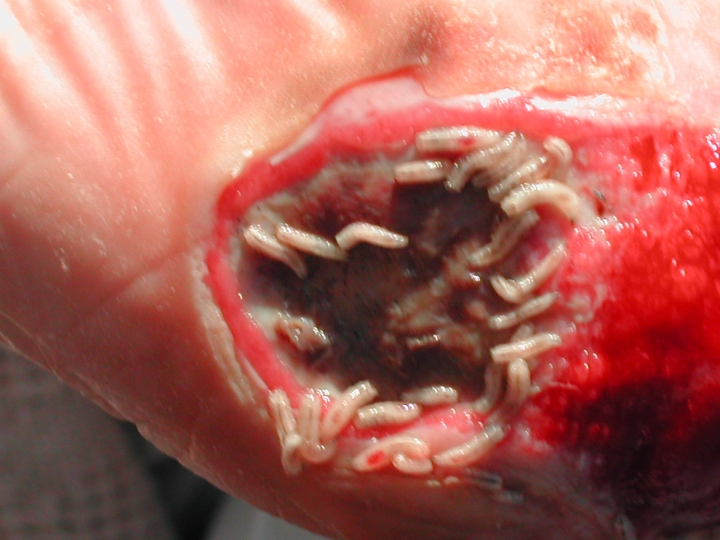It's not surprising that the state with the filthiest hospitals and now laws protecting patients are mostly red states.
Find a retired nurse in her sixties or seventies and ask her about the number of hospital acquired infection that she was aware of when she first became a nurse. She will tell you that they were extremely rare. She will go on to tell you that they were not tolerated and that when they did occur the county health department tracked them down, asses got kicked and the problem got fixed. Back in her day HAIs were taken very seriously. Today hospital infections are routine and expected. Thirty years ago medicine was a profession. Today it's an industry. Forty years ago doctors were compassionate healers who honored their profession and their oath. Today they are LLC (Limited Liability Corporations)
Today there are companies like Kimberly-Clark and organizations like RID Committee to Reduce Infection Deaths who sell products and promote effective protocols to eradicate HAIs. The disinfecting products that Kimberly-Clark sells are far superior to what was available thirty years ago.Kimberly-Clark is aggressively publicizing the desperate need for infection control in American hospitals and hospitals worldwide.
Kimberly-Clark has launched a NOT ON MY WATCH a campaign that is aimed at educating doctors (good luck with that) and other health care workers on how to prevent Hospital Acquired infection. If you click this link you will find some very disturbing data that Kimberly-Clark is presenting to warn patients. It is the same data that your doctor and hospital would rather you not know.
Kimberly-Clark and RID are not the only ones working on behalf of patients in trying to educate hospitals and doctors on the importance basic hygiene. Johns Hopkins School of Public Health along with Consumers Union has issued effective protocol that hospitals ignore and doctors still ignore. The federal government does not now nor will it regulate health care. hat is and will continue to be left up to corrupt and weak state medical boards. Johns Hopkins is urging people to contact their state legislatures to ask hem to pass laws that will protect patients from these deadly pathogens that infest our hospitals and I am not just talking about doctors. If you go to this LINK you will find who to write to in your state. Please take a few minutes to write to your state senator or assemblyman. They may have lost a loved one to the gross negligence of a hospital and may be inclined to do the right thing for the citizens of your state.
Kimberly-Clark and others are offering hospitals and health care facilities great tools and great advice for eradicating hospital borne infection but damn few hospitals are listening. It would be easy to blame the working stiffs who get treated like crap by their higher ups. Most hospital workers are scared shit less of management and if they were ordered to keep the hospital clean or else, the hospital would be clean and disease free.
According to Time Magazine In the U.S., hospital-acquired infections affect 1 in 10 patients,killing 90,000 of them each year and costing as much as $11 billion each year
Read more:http://www.time.com/time/specials/2007/article/0,28804,1733748_1733754_1735344,00.html#ixzz0oujrz8ti
Stopping hospital infections is a no brainer. From Wikipedia, the free encyclopedia Peter J. Pronovost is an intensive care specialist physician at Johns Hopkins Hospital in Baltimore, Maryland.[3] He is a Professor at the Johns Hopkins University School of Medicine in the Departments of Anesthesiology and Critical Care Medicine, and Surgery, Professor of Health Policy and Management at the Johns Hopkins Bloomberg School of Public Health, and is Medical Director for the Center for Innovation in Quality Patient Care.
He introduced an intensive care checklist protocol that during an 18-month period saved 1500 lives and $100 million in the State of Michigan.[4] According to Atul Gawande in The New Yorker,Pronovost's "work has already saved more lives than that of any laboratory scientist in the past decade".
In 2008 Time named Pronovost one of the 100 most influential people in the world; that same year, Pronovost was awarded a MacArthur Fellowship, otherwise known as a "genius grant".
One of the good guys Peter Prononost.
Pronovost's book Safe patients, smart hospitals: how one doctor's checklist can help us change health care from the inside out was released in February 2010.So here we have Peter Provonost whose simple check list saved 1500 lives and most hospitals ignore him. Why? Why? Why?! Is it because bad medicine is more lucrative than good medicine and while an ounce of prevention may still be worth a pound of cure treating hospital borne infections is worth a lot more... a hell of a lot more.
So much for the slick photos of attractive models portraying concerned and vigilant doctors, medical technicians and nurses. Now it's time to see the results of medical negligence when it comes to infection control.
Thanks Doc!
Here's a link to some real people telling their stories about being infected.
